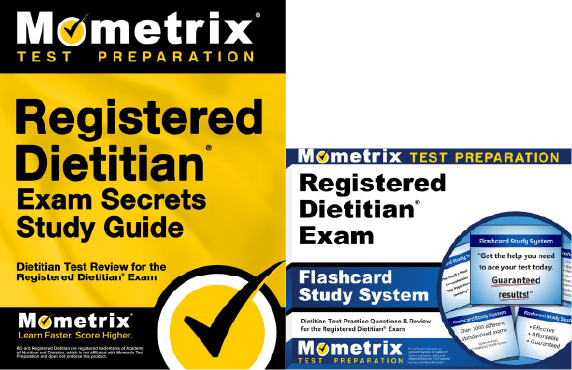If you need help studying for the Registered Dietitian® (RD®) exam or just want some more information about what the test is like, you’ve come to the right place.
Click below for free Registered Dietitian exam practice questions!
Exam Eligibility
Before you can register to take the Registered Dietitian exam, you’ll have to meet the requirements via ONE of the following options:
Dietetic Internship
For this option, you’ll need to have a graduate degree (at least), complete an ACEND-accredited DPD, and complete an ACEND-accredited DI.
Coordinated Program
For this option, you’ll need to have a graduate degree (at least) and complete an ACEND-accredited CP.
Graduate Program
For this option, you’ll need to complete an ACEND-accredited dietitian nutritionist program with at least 1,000 hours of experiential learning.
Doctorate ISPP
For this option, you’ll need to have a doctorate degree and complete an ACEND-accredited doctorate ISPP.
If you meet the requirements in one of these options, you’re set to begin the registration process!
What’s on the Exam?
First, let’s talk about the questions on the exam. The number of questions you get depends on how well you’re doing as you take the test. You’ll get a minimum of 125 multiple-choice questions total, and you’ll have 3 hours to answer them all.
If you answer all 125 questions before the time runs out, you’ll get up to 20 more questions to answer until the time is up.
Regardless of how many questions you answer, 25 of the questions will not count toward your score. Why is that?
The 25 unscored questions on the exam are called “pretest” questions. These are added to the exam to determine if they’re good enough questions to add to future versions of the test.
The trick is that you won’t have any way of knowing which questions are scored and which ones are pretest. They will appear just like the scored questions throughout the test.
Let’s take a closer look at the different sections of the Registered Dietitian exam.
1. Principles of Dietetics
21% of the exam
- Food, nutrition, and supporting sciences
- Education, communication, and technology
- Research applications
2. Nutrition Care for Individuals and Groups
45% of the exam
- Screening and assessment
- Diagnosis
- Planning and intervention
- Monitoring and evaluation
3. Management of Food and Nutrition Programs and Services
21% of the exam
- Functions of management
- Human resource management
- Financial management
- Marketing and public relations
- Quality management and regulatory compliance
4. Foodservice Systems
13% of the exam
- Menu development
- Procurement
- Production
- Distribution and service
- Sanitation and safety
- Equipment and facility planning
Computer-Adaptive Testing (CAT)
The Registered Dietitian exam is a computer-adaptive test. Basically, this means that the questions will become harder or easier as you go through the exam, based on how well you’re answering the questions.
For example, say you answered the first question correctly. The first question is of medium difficulty, so the next question will be slightly harder. Then, let’s say you answered the second question incorrectly. The next question would then be a medium question.
How to Register
Once you’ve ensured that you meet all of the eligibility requirements, you can register for the exam.
To get started, you’ll need to submit an application via Pearson VUE’s website. The application will ask you for your contact information and any documentation to prove your eligibility (among other things).
When you submit the application, you’ll also need to submit the testing fee, which is $225.
Exam Scores
The test is scored using a scaled scoring method. Here’s how it works:
For every question you answer correctly, you get one point added to your raw score. At the end of the test, your final raw score will be converted to a scaled score. This scaled score will range somewhere between 1 and 50.
The reason your raw score is converted to a scaled score is because everyone who takes the test is given a slightly different set of questions. Since everyone has a different arrangement of questions, and because some questions are harder than others, converting your raw score to a scaled score ensures a more even playing field.
Retaking the Exam
If you didn’t get a passing score on your first try, that’s okay! You can retake the test after a 45-day waiting period.
FAQs
How many questions are on the Registered Dietitian exam?
The exam contains between 125 and 145 questions, depending on how quickly you answer them.
What is the time limit for the Registered Dietitian exam?
The exam is timed at 3 hours.
What is the passing score for the Registered Dietitian exam?
You’ll need to get a final scaled score of at least 25 to pass.
How much does the Registered Dietitian exam cost?
The testing fee is $225.
RD and Registered Dietitian are registered trademarks of Academy of Nutrition and Dietetics, which is not affiliated with Mometrix Test Preparation and does not endorse this page.



 Registered Dietitian Study Guide
Registered Dietitian Study Guide Registered Dietitian Flashcards
Registered Dietitian Flashcards
